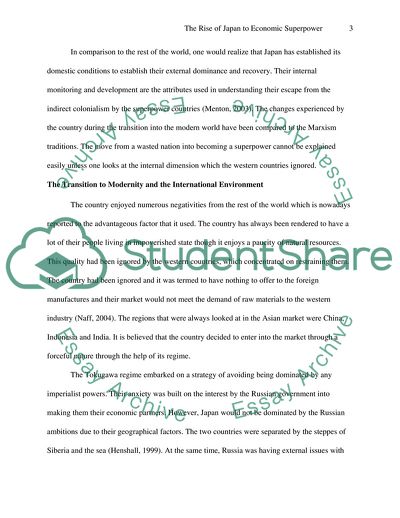Cite this document
(The Rise of Japan to Economic Superpower Coursework Example | Topics and Well Written Essays - 1500 words, n.d.)
The Rise of Japan to Economic Superpower Coursework Example | Topics and Well Written Essays - 1500 words. https://studentshare.org/macro-microeconomics/1813183-how-and-why-was-japan-able-to-rise-from-a-defeated-and-shattered-nation-in-1945-to-a-global-economic-superpower-thirty-years-later
The Rise of Japan to Economic Superpower Coursework Example | Topics and Well Written Essays - 1500 words. https://studentshare.org/macro-microeconomics/1813183-how-and-why-was-japan-able-to-rise-from-a-defeated-and-shattered-nation-in-1945-to-a-global-economic-superpower-thirty-years-later
(The Rise of Japan to Economic Superpower Coursework Example | Topics and Well Written Essays - 1500 Words)
The Rise of Japan to Economic Superpower Coursework Example | Topics and Well Written Essays - 1500 Words. https://studentshare.org/macro-microeconomics/1813183-how-and-why-was-japan-able-to-rise-from-a-defeated-and-shattered-nation-in-1945-to-a-global-economic-superpower-thirty-years-later.
The Rise of Japan to Economic Superpower Coursework Example | Topics and Well Written Essays - 1500 Words. https://studentshare.org/macro-microeconomics/1813183-how-and-why-was-japan-able-to-rise-from-a-defeated-and-shattered-nation-in-1945-to-a-global-economic-superpower-thirty-years-later.
“The Rise of Japan to Economic Superpower Coursework Example | Topics and Well Written Essays - 1500 Words”. https://studentshare.org/macro-microeconomics/1813183-how-and-why-was-japan-able-to-rise-from-a-defeated-and-shattered-nation-in-1945-to-a-global-economic-superpower-thirty-years-later.


